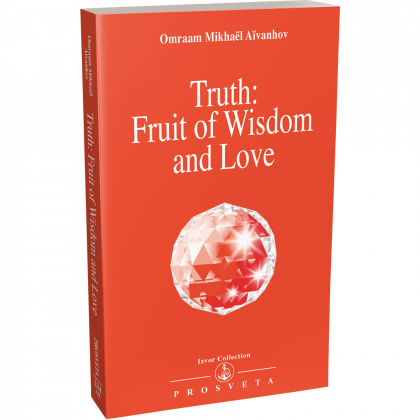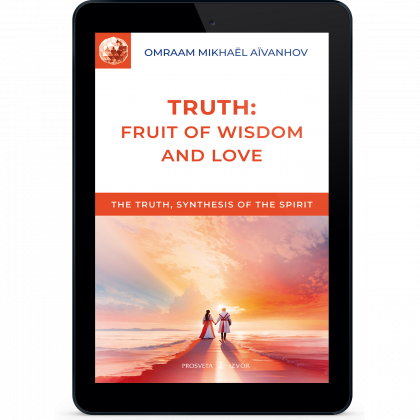There is no Arguing about Tastes
The truth does not depend on conditions or people
'We must have our own personal truth, to be sure, but we must never lose sight of the fact that truth depends neither on conditions nor on persons. It is a common failing of human beings to attach importance to what someone says only in proportion to their rank or social standing. You pay no attention to a truth if it is revealed to you by a pauper, but you are all ears if that same truth – or, for that matter, any trivial piece of information – is revealed to you by a distinguished professor.
And yet truth has its own intrinsic value, and it is this that we should appreciate, regardless of the form in which it is revealed, or the title or rank of the person who reveals it.
The value of a truth is not lessened by being uttered by someone of no importance, any more than the value of a gold sovereign is diminished by being in the pocket of a tramp. Naturally, if a king gives you a sovereign it will represent something more than its face-value for you, because your vanity is involved. It contains not a milligram of gold more than any other similar coin, but you can say, ‘It was a present from the king!’ You may even get a better price for it, just as furniture or other antiques fetch a better price if they belonged to Napoleon, Balzac or Madame de Staël. But that is nothing but snobbery!
A scientific or philosophical truth has an intrinsic value even if it is not uttered by an initiate. If you are sufficiently highly evolved not to dwell on the form, you will pay as much attention to a truth told by a peasant as to one told by a king.
So from time to time pause and ask yourself what it is that makes you accept or reject an idea or opinion. Try to recognize the inner tendencies that prevent you from judging impartially, and stop behaving as though you were in possession of the whole truth.
It is essential that people make up their minds to reason along these lines and be a little less self-assertive, for until they do they will continue to quarrel about anything and everything. You must learn to recognize all those inferior tendencies that reinforce your false opinions, for these are what make it impossible to recapture the unity in which human beings can understand each other and coexist harmoniously.
Above all, stop hiding behind the notion that there is no arguing about tastes.'
'We must have our own personal truth, to be sure, but we must never lose sight of the fact that truth depends neither on conditions nor on persons. It is a common failing of human beings to attach importance to what someone says only in proportion to their rank or social standing. You pay no attention to a truth if it is revealed to you by a pauper, but you are all ears if that same truth – or, for that matter, any trivial piece of information – is revealed to you by a distinguished professor. And yet truth has its own intrinsic value, and it is this that we should appreciate, regardless of the form in which it is revealed, or the title or rank of the person who reveals it.
The value of a truth is not lessened by being uttered by someone of no importance, any more than the value of a gold sovereign is diminished by being in the pocket of a tramp.
Naturally, if a king gives you a sovereign it will represent something more than its face-value for you, because your vanity is involved. It contains not a milligram of gold more than any other similar coin, but you can say, ‘It was a present from the king!’ You may even get a better price for it, just as furniture or other antiques fetch a better price if they belonged to Napoleon, Balzac or Madame de Staël. But that is nothing but snobbery!
A scientific or philosophical truth has an intrinsic value even if it is not uttered by an initiate. If you are sufficiently highly evolved not to dwell on the form, you will pay as much attention to a truth told by a peasant as to one told by a king.
So from time to time pause and ask yourself what it is that makes you accept or reject an idea or opinion. Try to recognize the inner tendencies that prevent you from judging impartially, and stop behaving as though you were in possession of the whole truth. It is essential that people make up their minds to reason along these lines and be a little less self-assertive, for until they do they will continue to quarrel about anything and everything. You must learn to recognize all those inferior tendencies that reinforce your false opinions, for these are what make it impossible to recapture the unity in which human beings can understand each other and coexist harmoniously.
Above all, stop hiding behind the notion that there is no arguing about tastes.'
Text taken from the book "Truth: Fruit of Wisdom and Love", chap. 10 "There is no Arguing about Tastes".




